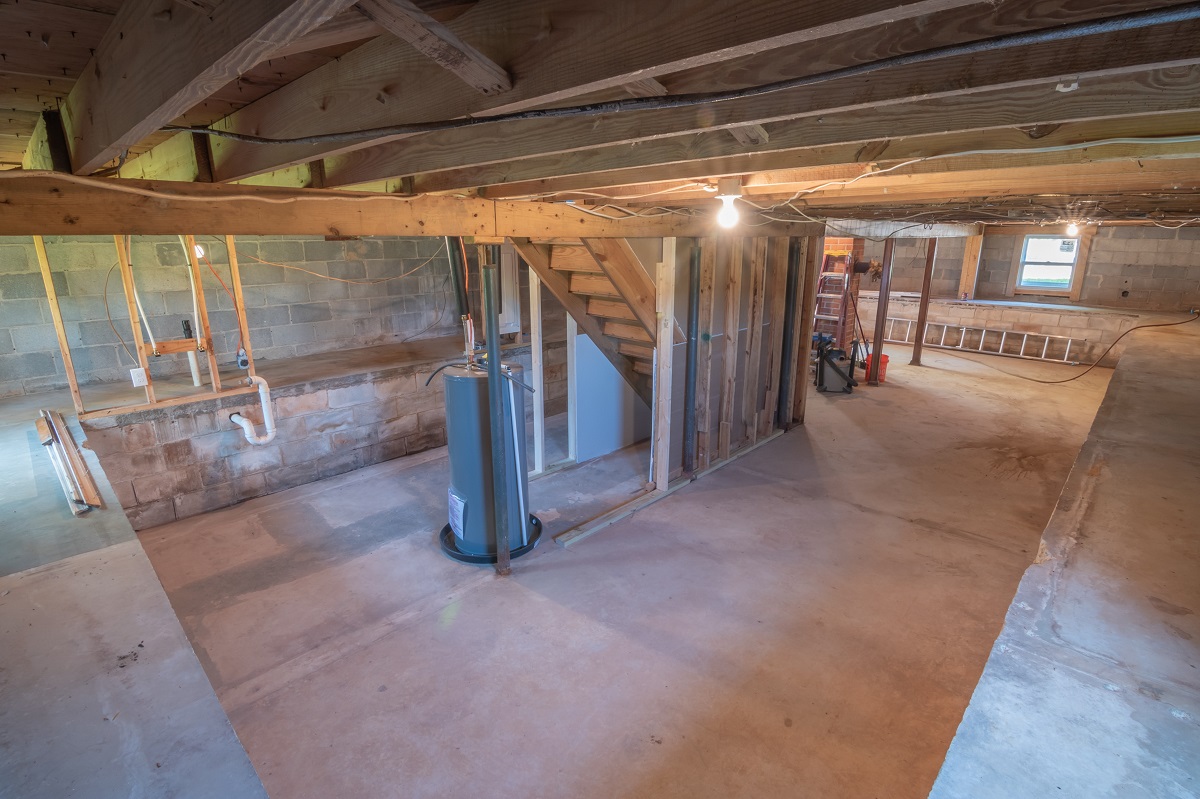

Articles
Why Does Basement Smell Musty
Modified: February 24, 2024
Discover articles on why your basement smells musty and learn how to get rid of the unpleasant odor. Find effective solutions and prevent future musty smells.
(Many of the links in this article redirect to a specific reviewed product. Your purchase of these products through affiliate links helps to generate commission for Storables.com, at no extra cost. Learn more)
Introduction
Have you ever noticed a musty smell in your basement? That unpleasant odor can be a sign of underlying issues that need to be addressed. A musty basement smell is not only unpleasant but can also be a sign of potential health risks. Understanding the causes of this smell and knowing how to get rid of it is essential to create a clean and healthy living environment.
Basements are prone to developing musty smells due to various factors such as excessive moisture, poor ventilation, mold and mildew growth, water damage, and lack of cleaning and maintenance. These factors can lead to a damp and stagnant environment that not only triggers unpleasant odors but also promotes the growth of harmful microorganisms.
This article will delve deeper into the causes of a musty basement smell and provide effective tips on how to eliminate it. By addressing the underlying issues and implementing preventive measures, you can ensure a fresh and odor-free basement.
Key Takeaways:
- Eliminate musty basement smell by improving ventilation, controlling moisture, removing mold, fixing water damage, and maintaining cleanliness. Create a fresh and healthy living space for you and your family.
- Address potential health risks associated with musty basements by taking preventive measures and maintaining a proactive approach to cleaning and maintenance. Ensure a safe and healthy living environment.
Read more: Why Does AC Smell Musty
Causes of Musty Basement Smell
There are several common causes of a musty basement smell. Understanding these causes is crucial to effectively eliminate the odor and prevent its recurrence. Let’s explore each one in detail:
- Excessive Moisture: High humidity levels can contribute to a musty basement smell. When moisture levels rise above normal, it creates a damp environment that becomes a breeding ground for mold, mildew, and bacteria. This can lead to a persistent musty smell in the basement.
- Poor Ventilation: Inadequate ventilation can exacerbate the smell in the basement. Without proper airflow, stagnant air gets trapped, contributing to the buildup of moisture and stale odors. A lack of fresh air circulation can also prevent the basement from drying out, further perpetuating the musty smell.
- Mold and Mildew Growth: Mold and mildew thrive in damp conditions, and a musty basement is an ideal environment for their growth. When moisture accumulates on surfaces such as walls, floors, or furniture, it provides a breeding ground for these fungi. As they multiply, they release a distinct musty odor that permeates the basement.
- Water Damage: Any past or ongoing water intrusion issues in the basement can result in a musty smell. Whether it’s from leaky pipes, foundation cracks, or basement flooding, water damage creates a moist environment that fosters mold growth and causes the basement to emit an unpleasant odor.
- Lack of Cleaning and Maintenance: Neglecting regular cleaning and maintenance of the basement can contribute to the musty smell. Dust, dirt, and debris build up over time, creating an ideal breeding ground for odor-causing bacteria. Proper cleaning and maintenance are essential to prevent odors and keep the basement fresh.
By addressing these underlying causes, you can effectively eliminate the musty basement smell and create a healthier living environment. In the following sections, we will discuss effective strategies to get rid of the odor and maintain a fresh-smelling basement.
Excessive Moisture
Excessive moisture is one of the leading causes of a musty basement smell. When moisture levels rise above normal, it creates a damp environment that promotes the growth of mold, mildew, and bacteria. This can lead to persistent odors and potential health risks.
There are various factors that can contribute to excessive moisture in the basement:
- Poor Drainage: If the surrounding soil doesn’t drain properly, water can seep into the basement through the foundation walls or floor. This can result in dampness and lead to the musty smell.
- Leaky Pipes: Plumbing leaks in the basement can introduce water and moisture into the area. Whether it’s a dripping pipe or a faulty connection, addressing and fixing these leaks is crucial for controlling moisture levels.
- High Humidity: Humid weather conditions, especially in areas with poor ventilation, can contribute to elevated moisture levels in the basement. Without proper airflow, the moisture in the air condenses on surfaces, creating a damp environment.
- Inadequate Insulation: Insufficient insulation in the basement can lead to condensation on walls and floors. This can result in moisture buildup and contribute to the musty smell.
To address excessive moisture and eliminate the musty basement smell, consider the following steps:
- Identify and fix any water leaks: Inspect the basement for any signs of water intrusion, such as water stains, wet spots, or pooling water. Address and repair any leaks promptly to prevent further moisture buildup.
- Improve drainage: Ensure that the surrounding outdoor area is graded away from the foundation of the house. This helps redirect water away from the basement and prevents it from seeping in.
- Use a dehumidifier: Installing a dehumidifier in the basement can help regulate moisture levels. It removes excess humidity from the air and prevents mold and mildew growth.
- Insulate the basement: Proper insulation can help prevent condensation and moisture buildup. Consult a professional to determine the appropriate insulation measures for your basement.
By addressing excessive moisture, you can effectively eliminate the musty basement smell and create a drier, healthier environment. In the next sections, we will explore other causes of the odor and provide additional tips for getting rid of it.
Poor Ventilation
Poor ventilation is another common cause of a musty basement smell. Without proper airflow, stagnant air becomes trapped in the basement, leading to a buildup of moisture and stale odors. This can create an uncomfortable living environment and contribute to the musty smell that permeates the space.
Several factors can contribute to poor ventilation in the basement:
- Lack of Windows: If the basement lacks windows or has small, insufficiently sized windows, it limits the amount of fresh air that can flow into the space. This can lead to inadequate ventilation and the accumulation of stagnant air.
- Blocked Vents: Ensure that all vents in the basement are not blocked by furniture, boxes, or other items. Blocked vents prevent the proper flow of air and impede ventilation.
- Inadequate Air Circulation: If the layout and design of the basement impede airflow, it can contribute to poor ventilation. Obstructed areas or closed-off rooms can trap air and promote the development of a musty smell.
- Inadequate Exhaust System: If the basement is used for activities that generate moisture, such as laundry or cooking, it’s essential to have proper exhaust systems in place. Inadequate exhaust ventilation can result in excess moisture and contribute to the musty smell.
To improve ventilation and eliminate the musty basement smell, consider the following steps:
- Open windows and doors: When weather permits, open windows and doors to allow fresh air to circulate throughout the basement. This helps remove stagnant air and replace it with fresh, odor-free air.
- Install ventilation fans: Consider installing ventilation fans in the basement to improve air circulation. Position fans strategically to ensure proper airflow and remove stale air from the space.
- Use portable fans: Place portable fans in strategic locations to promote air circulation. Aim the fans towards open windows or doors to help remove stagnant air from the basement.
- Consider a heat recovery ventilator: A heat recovery ventilator (HRV) is a system that exchanges stale air from the basement with fresh air from outside while recovering heat. It helps improve ventilation and removes musty odors.
By addressing poor ventilation, you can significantly reduce the musty basement smell and create a fresher and more comfortable living environment. In the upcoming sections, we will explore other causes of the odor and provide additional tips for eliminating it.
Mold and Mildew Growth
Mold and mildew growth is a common cause of a musty basement smell. These fungi thrive in damp environments and can quickly spread in areas with high humidity and moisture. As they multiply, they release volatile compounds that create the distinct musty odor associated with a moldy basement.
Several factors can contribute to mold and mildew growth in the basement:
- Excessive Moisture: High levels of moisture in the basement provide the ideal conditions for mold and mildew to thrive. Whether it’s from water leaks, poor drainage, or high humidity, excess moisture promotes the growth of these fungi.
- Poor Ventilation: Inadequate airflow and poor ventilation prevent the basement from drying out, creating a breeding ground for mold and mildew.
- Water Damage: Any past or present water damage, such as leaks or flooding, can lead to mold and mildew growth. Moist surfaces provide a food source for these fungi, allowing them to proliferate and emit the musty odor.
- Organic Materials: If the basement contains porous and organic materials such as cardboard, wood, or fabrics, it can serve as a food source for mold and mildew. These materials absorb and retain moisture, creating an environment conducive to fungal growth.
To address mold and mildew growth and eliminate the musty basement smell, consider the following steps:
- Identify and fix moisture sources: Inspect the basement for any signs of water intrusion or leaks. Address and repair these issues promptly to prevent further moisture buildup and mold growth.
- Clean and disinfect affected areas: If mold and mildew are present, thoroughly clean and disinfect the affected areas. Use a mixture of water and bleach or a commercial mold cleaner to kill the fungi and remove any musty odors.
- Improve ventilation and airflow: Enhance ventilation in the basement by opening windows and using fans or ventilation systems. Proper airflow helps prevent the growth of mold and mildew by keeping the space dry and reducing humidity.
- Control humidity levels: Use dehumidifiers to control humidity levels and reduce moisture in the basement. Maintaining humidity levels below 50% can inhibit mold and mildew growth.
- Remove and replace mold-infested materials: If porous materials, such as carpets or drywall, have been severely affected by mold, it may be necessary to remove and replace them to eliminate the odor and prevent further contamination.
- Prevent future mold growth: Implement preventive measures such as waterproofing the basement, fixing any leaks promptly, and regularly inspecting for signs of moisture. This helps ensure that mold and mildew growth is minimized in the future.
By addressing mold and mildew growth, you can effectively eliminate the musty basement smell and create a healthier living environment. In the following sections, we will explore other causes of the odor and provide additional tips for eliminating it.
Read more: Why Does My Laundry Room Smell Musty
Water Damage
Water damage is a significant cause of a musty basement smell. Whether it’s due to leaks, flooding, or other water-related issues, water damage creates a moist environment that promotes the growth of mold, mildew, and bacteria. It not only causes structural damage to the basement but also emits a distinct musty odor.
Several factors can contribute to water damage in the basement:
- Leaky Pipes: Plumbing leaks can introduce water into the basement. Even small drips or hidden leaks can lead to moisture buildup and create an ideal environment for musty odors to develop.
- Foundation Cracks: Cracks in the foundation walls or floors can allow water to seep into the basement. This can lead to dampness, mold growth, and the musty smell associated with water damage.
- Basement Flooding: Flooding can occur due to heavy rainfall, burst pipes, or sewer backup. When the basement gets flooded, the water can saturate the walls, floors, and belongings, resulting in extensive water damage and a persistent, musty odor.
- Poor Exterior Drainage: If the surrounding landscape doesn’t drain properly, water can accumulate near the foundation and seep into the basement. This can lead to moisture issues and contribute to the musty smell.
- Inadequate Sump Pump: A sump pump is designed to prevent basement flooding by removing excess water. If the sump pump is malfunctioning or inadequate for the basement’s needs, it can result in water damage and musty odors.
To address water damage and eliminate the musty basement smell, consider the following steps:
- Identify and repair water leaks: Inspect the basement for any signs of water leaks, such as damp spots, water stains, or mold growth. Fixing these leaks is essential to prevent further water damage and the accompanying odor.
- Address foundation cracks: If there are cracks in the foundation walls or floor, have them professionally repaired to prevent water seepage into the basement. This helps eliminate the source of the musty smell.
- Take preventative measures: Ensure that the surrounding landscape is properly graded to prevent water from pooling near the foundation. Install gutter extensions to direct rainwater away from the house. These measures help minimize the risk of water damage and associated odors.
- Ensure proper sump pump functionality: Regularly inspect and maintain the sump pump to ensure it is working properly. Consider installing a backup sump pump for added protection against basement flooding.
- Remove and dry out water-damaged materials: If the basement has suffered from flooding or extensive water damage, remove any water-damaged materials promptly. Dry out the area thoroughly to prevent mold and mildew growth and eliminate the musty odor.
- Consider waterproofing: If water damage is a recurring issue, consult with professionals about waterproofing options for the basement. This can help protect against future water damage and mitigate the musty smell.
By addressing water damage promptly, you can effectively eliminate the musty basement smell and create a dry, odor-free living environment. In the following sections, we will explore other causes of the odor and provide additional tips for eliminating it.
Lack of Cleaning and Maintenance
A lack of regular cleaning and maintenance is a common cause of a musty basement smell. Over time, dust, dirt, and debris can accumulate in the basement, creating an ideal environment for odor-causing bacteria to thrive. Neglecting proper cleaning and maintenance practices allows for the buildup of musty odors and can contribute to an unpleasant living environment.
Several factors can contribute to the musty smell resulting from a lack of cleaning and maintenance:
- Dust and Dirt: Dust particles and dirt can accumulate on surfaces and in hard-to-reach areas in the basement. These substances can release odors and contribute to the musty smell if not regularly cleaned.
- Mold and Mildew: Without regular cleaning, mold and mildew can flourish in the basement. These fungi release musty odors as they grow and reproduce, contributing to an unpleasant smell.
- Pet Dander and Odors: If pets have access to the basement, their dander, fur, and odors can accumulate over time. This can result in unpleasant odors that contribute to the musty basement smell.
- Lack of Air Circulation: If the basement is rarely used or closed off, it prevents proper air circulation. Stagnant air can quickly become musty and contribute to the development of a persistent odor.
- Contaminated Items: Basement belongings stored for extended periods without proper cleaning or care can develop musty odors. Dust, moisture, and lack of ventilation can cause items to emit an unpleasant smell.
To address the musty basement smell resulting from a lack of cleaning and maintenance, consider the following steps:
- Regularly clean the basement: Implement a regular cleaning routine for the basement, including sweeping, vacuuming, and mopping the floors. Dust surfaces, shelves, and stored items to remove accumulated dirt.
- Wash and launder items: If you have stored items in the basement, ensure they are clean and free of dust and odors. Launder fabric items, such as clothing or curtains, and wipe down hard surfaces regularly.
- Improve ventilation: Open windows and doors to allow fresh air to circulate in the basement. Use fans or install ventilation systems to promote airflow and reduce stagnant air and musty odors.
- Control pet-related odors: If pets frequent the basement, regularly clean their bedding and toys to prevent the buildup of odors. Vacuum pet hair and dander to minimize their contribution to the musty smell.
- Remove clutter: Declutter the basement to create a clean and organized space. Get rid of unnecessary items and consider proper storage solutions to prevent accumulation of dust and odors.
- Inspect and fix any leaks or water damage: Regularly inspect the basement for signs of water leaks or damage. Address and repair these issues promptly to prevent mold growth and musty odors.
By incorporating regular cleaning and maintenance practices, you can effectively eliminate the musty basement smell and create a fresh and inviting living environment. In the following sections, we will explore the potential health risks associated with a musty basement and provide additional tips for getting rid of the odor.
Health Risks of Musty Basements
A musty basement smell not only creates an unpleasant living environment but can also pose potential health risks. The presence of mold, mildew, and other microorganisms in a damp basement can trigger various health issues, especially for individuals who are sensitive or allergic to these substances.
Here are some potential health risks associated with a musty basement:
- Allergies: Mold spores and other airborne particles released by mold and mildew can trigger allergic reactions in susceptible individuals. Symptoms may include sneezing, coughing, itchy or watery eyes, and respiratory problems.
- Asthma exacerbation: For individuals with asthma, exposure to mold and musty odors can worsen symptoms and lead to asthma attacks. The presence of mold in the basement can make it harder to manage asthma effectively.
- Respiratory infections: Prolonged exposure to mold and other microorganisms in a musty basement can weaken the respiratory system, making individuals more susceptible to respiratory infections. This includes sinusitis, bronchitis, and pneumonia.
- Skin irritation: Certain types of mold can cause skin irritation and allergic reactions upon contact. If there are mold growth and stagnant moisture in the basement, touching contaminated surfaces can lead to skin rashes or irritation.
- Toxigenic mold exposure: Some molds produce mycotoxins, which are toxic substances that can be harmful to human health. Prolonged exposure to these toxins can lead to more severe health effects, such as neurological symptoms and immune system suppression.
- Other health concerns: In addition to respiratory and allergic reactions, living in a musty basement can also contribute to headaches, fatigue, difficulty concentrating, and general discomfort.
To minimize the health risks associated with a musty basement, it is crucial to address the underlying causes of the odor, such as excessive moisture, mold growth, and poor ventilation. By implementing the following tips, you can create a healthier living environment:
- Control moisture levels: Address water leaks, improve drainage, and use dehumidifiers to maintain optimal moisture levels in the basement.
- Remove mold and mildew: Thoroughly clean and disinfect affected areas to eliminate mold and mildew growth. Consider professional assistance for extensive mold infestations.
- Improve ventilation: Promote airflow in the basement by opening windows, using fans, or installing ventilation systems to reduce stagnant air and control moisture.
- Regularly clean and maintain the basement: Implement a cleaning routine to remove dust, dirt, and debris. Keep the basement clutter-free and properly store items to prevent moisture buildup.
- Use protective equipment: When cleaning or working in a musty basement, wear gloves, goggles, and a mask to minimize exposure to mold spores and other allergens.
- Seek professional help if needed: If you are dealing with extensive mold growth or persistent musty odors, consult with professionals who specialize in mold remediation and indoor air quality.
By taking these preventive measures and addressing the health risks associated with a musty basement, you can create a safe and healthy living space for you and your family. In the following sections, we will provide additional tips for getting rid of the musty basement smell.
To reduce musty smells in the basement, try using a dehumidifier to control moisture levels, and ensure proper ventilation by opening windows or using fans. Regularly clean and inspect the area for any signs of mold or mildew.
Tips to Get Rid of Musty Basement Smell
Dealing with a musty basement smell can be unpleasant, but there are effective steps you can take to eliminate the odor and create a fresh and inviting living space. By addressing the underlying causes and implementing the following tips, you can successfully get rid of the musty basement smell:
- Improve ventilation: Open windows and doors to promote airflow and allow fresh air to circulate in the basement. Consider using fans or installing ventilation systems to enhance air circulation and reduce stale odors.
- Control moisture levels: Address any sources of excessive moisture, such as leaks or high humidity. Repair water leaks, improve drainage, and use dehumidifiers to maintain optimal moisture levels in the basement.
- Remove mold and mildew: Thoroughly clean and disinfect any areas affected by mold and mildew growth. Use a mixture of water and bleach or a commercial mold cleaner to kill the fungi and eliminate the associated musty odor.
- Fix any water damage: Identify and repair any water damage in the basement promptly. This includes fixing leaks, sealing foundation cracks, and drying out affected areas to prevent further odor-causing moisture issues.
- Regularly clean and maintain the basement: Implement a regular cleaning routine to remove dust, dirt, and debris. Dust surfaces, vacuum floors, and clean storage items to prevent the accumulation of musty odors.
- Use natural deodorizers: Consider using natural deodorizers to eliminate the musty smell. Place bowls of white vinegar, activated charcoal, or baking soda in the basement to absorb odors. You can also try using essential oils or citrus peels to create a pleasant aroma.
- Inspect and clean air ducts: If your basement has air ducts, make sure they are clean and free of dust and mold. Schedule professional air duct cleaning if necessary to improve air quality and eliminate musty odors.
- Consider professional mold remediation: If you’re dealing with extensive mold growth or persistent musty odors, it may be necessary to seek professional help. Certified mold remediation specialists can assess the situation and safely remove mold to eliminate the odor and prevent further health risks.
- Prevent future odor issues: Once you have eliminated the musty basement smell, take preventive measures to maintain a fresh environment. This includes regular cleaning and maintenance, controlling moisture levels, and ensuring proper ventilation.
By following these tips, you can effectively eliminate the musty basement smell and create a fresh, clean, and inviting space. Remember, addressing the underlying causes and maintaining a proactive approach to cleaning and maintenance will help prevent the odor from returning in the future.
Now that you’re equipped with knowledge on how to get rid of the musty basement smell, you can confidently transform your basement into a pleasant and healthy living area. In the following section, we will conclude our article with a summary of the key points discussed.
Read more: Why Does My Air Conditioner Smell Musty
Improve Ventilation
Improving ventilation is a crucial step in getting rid of a musty basement smell. Proper airflow helps remove stale air and helps control moisture levels, which can contribute to the development of odors. By enhancing ventilation in the basement, you can create a fresh and comfortable living environment. Here are some effective tips to improve ventilation:
- Open windows and doors: When weather conditions permit, open windows and doors to allow fresh air to enter the basement. This simple step can help reduce musty odors and promote better air circulation.
- Use fans: Place fans strategically in the basement to enhance airflow. Position them near windows or doors to draw fresh air inside and push out stagnant air. Ceiling fans can also be effective in improving ventilation throughout the space.
- Install ventilation systems: Consider installing mechanical ventilation systems, such as exhaust fans or air exchange systems, to ensure consistent airflow. These systems can help remove stale air and humidity while bringing in fresh outdoor air.
- Clean and maintain existing vents and ducts: Inspect and clean air vents and ducts in the basement regularly. Dust and debris can accumulate over time, obstructing airflow and reducing ventilation efficiency. Clean vents and ducts help ensure proper air circulation.
- Clear obstructions: Ensure that vents and air registers in the basement are not blocked by furniture, boxes, or other objects. Obstructions can hinder the flow of air and limit ventilation effectiveness.
- Consider a dehumidifier: Using a dehumidifier can help control moisture levels and improve ventilation. Excess humidity can lead to musty odors and mold growth, so keeping it in check with a dehumidifier can contribute to a fresher basement environment.
- Create natural airflow pathways: If possible, arrange furniture and belongings in the basement to promote natural airflow pathways. Avoid obstructing windows or other openings that allow air to circulate freely.
- Consider window wells: If the basement has windows below ground level, consider installing window wells outside these windows. Window wells help bring in more natural light and airflow, aiding in ventilation and reducing dampness.
- Monitor and adjust humidity levels: Use a hygrometer to monitor the humidity levels in the basement. Ideally, humidity levels should be kept below 50%. If necessary, use a humidifier or ventilation fans to lower humidity levels and improve ventilation.
- Address sources of moisture: Moisture sources such as leaks or condensation can contribute to poor ventilation and a musty smell. Identify and address these sources promptly to prevent further moisture-related issues and to improve overall ventilation in the basement.
By implementing these ventilation improvement tips, you can effectively enhance the airflow in your basement and reduce the musty smell. Proper ventilation not only eliminates odors but also reduces the risk of mold and mildew growth, creating a healthier and more pleasant living space.
In the next section, we will provide additional tips to control moisture levels in the basement, which is another crucial aspect of eliminating the musty basement smell.
Control Moisture Levels
Controlling moisture levels in the basement is essential for getting rid of a musty smell. Excess moisture can contribute to the growth of mold, mildew, and bacteria, leading to unpleasant odors and potentially causing health issues. By implementing effective moisture control strategies, you can create a drier and more comfortable environment. Here are some tips to control moisture levels in your basement:
- Identify and fix water leaks: Inspect the basement for any water leaks or sources of moisture. Look for signs of dampness, such as water stains or puddles. Address and repair leaks promptly to prevent further moisture buildup.
- Improve drainage: Ensure that the landscape around your home slopes away from the foundation to prevent water from seeping into the basement. Install gutter extensions to divert rainwater away from the house.
- Repair foundation cracks: Inspect the foundation walls and floors for cracks. These cracks can allow water to seep into the basement, leading to moisture issues. Seal any cracks you find to prevent further water infiltration.
- Use waterproofing materials: Consider applying a waterproof coating to the interior surfaces of the basement walls to prevent seepage. Waterproofing paint or sealants can help create a barrier and reduce moisture penetration.
- Install a sump pump: A sump pump can help remove excess water that may accumulate in the basement. It is especially helpful if you live in an area prone to heavy rainfall or if your basement is prone to flooding.
- Use a dehumidifier: A dehumidifier can effectively reduce moisture levels in the basement. It helps remove excess humidity from the air, reducing the potential for mold growth and musty odors.
- Ensure proper ventilation: Good ventilation is crucial for moisture control. It helps promote air circulation and prevents the buildup of stagnant, humid air. Open windows and use fans to facilitate airflow in the basement.
- Insulate pipes: Insulate exposed basement pipes to prevent condensation. Condensation on pipes can contribute to moisture buildup in the basement, leading to musty odors and the growth of mold and mildew.
- Use moisture-absorbing materials: Place moisture-absorbing materials such as silica gel packets, charcoal briquettes, or desiccants in the basement. These materials can help absorb excess moisture and prevent musty odors.
- Maintain proper humidity levels: Regularly monitor the humidity levels in the basement using a hygrometer. Ideally, humidity levels should be kept below 50% to discourage mold growth. Adjust the humidity using dehumidifiers, fans, or windows as needed.
By following these moisture control tips, you can effectively reduce the musty smell in your basement. Preventing excess moisture will not only eliminate odors but also help maintain a healthier living environment by inhibiting the growth of mold, mildew, and bacteria.
In the next section, we will discuss how to remove existing mold and mildew, another crucial step in getting rid of the musty basement smell.
Remove Mold and Mildew
Removing mold and mildew is crucial for eliminating the musty smell in your basement. These microorganisms thrive in damp environments and can release unpleasant odors. Promptly addressing mold and mildew growth not only improves the air quality but also helps create a healthier living space. Here are some steps to effectively remove mold and mildew:
- Wear protective gear: Before starting the removal process, ensure you are wearing proper protective gear. This includes gloves, goggles, and a mask to prevent direct contact and inhalation of mold spores.
- Dry out the area: Use fans and dehumidifiers to dry out the affected area and minimize moisture. It’s important to tackle the root cause of the mold and mildew growth by controlling moisture levels in the basement.
- Clean non-porous surfaces: For hard, non-porous surfaces such as tiles, glass, or metal, use a mixture of water and detergent or a commercial mold cleaner. Scrub the surfaces thoroughly, ensuring all visible mold is removed.
- Remove porous materials: Porous materials like carpets, upholstery, and drywall that are visibly moldy should be removed and disposed of properly. These materials can harbor mold growth and contribute to the musty smell.
- Use a bleach solution: Mix a solution of 1 part bleach to 10 parts water. Apply the solution to mold-affected areas and let it sit for 15 minutes before scrubbing the surface. Follow safety instructions and ensure proper ventilation while working with bleach.
- Dry and sanitize items: If mold has affected movable items such as clothing or furniture, remove them from the basement and dry them thoroughly. Wash clothing with hot water and a cup of vinegar to sanitize them.
- Inspect hidden areas: Check hidden areas, such as behind walls or under flooring, for mold growth. If you suspect hidden mold, consult a professional for a thorough assessment and remediation.
- Prevent future mold growth: To prevent mold from returning, pinpoint and address the source of moisture in your basement. Fix water leaks, improve ventilation, and maintain proper humidity levels. Regularly inspect and clean the basement to keep it dry and mold-free.
- Consider professional help: If you’re dealing with extensive mold growth, have allergies or health concerns, or are unsure about handling mold removal on your own, it is recommended to seek professional assistance. Certified mold remediation specialists can ensure proper removal and remediation.
By following these steps, you can effectively remove mold and mildew and eliminate the musty smell in your basement. Creating a clean and mold-free environment not only improves air quality but also contributes to a healthier and more pleasant living space.
In the next section, we will discuss tips for addressing water damage, another common cause of a musty basement smell.
Fix Water Damage
Water damage is a significant contributor to the musty smell in basements. Whether caused by leaks, floods, or other water-related issues, it’s important to address water damage promptly to prevent further damage and eliminate the associated musty odor. Here are some steps to fix water damage in your basement:
- Identify and repair water sources: Thoroughly inspect the basement for any sources of water leaks or intrusion. Look for signs of water stains, dampness, or pooling water. Address and repair the sources of water to prevent further damage and moisture buildup.
- Fix plumbing issues: Leaky pipes or faulty plumbing connections can introduce water into the basement. Identify and fix any plumbing issues to prevent ongoing moisture problems and musty odors.
- Seal foundation cracks: Cracks in the foundation walls or floor can allow water to seep into the basement. Seal these cracks using epoxy or a waterproof sealant to prevent further water intrusion.
- Dry out affected areas: Use fans, dehumidifiers, and open windows to dry out the affected areas. Proper drying is crucial to prevent the growth of mold and mildew, which can exacerbate the musty smell.
- Remove water-damaged materials: If any items or materials in the basement are excessively water damaged, such as soaked carpets, wet insulation, or damaged drywall, remove and replace them. Water-damaged materials can harbor mold growth and emit unpleasant odors.
- Consider professional water damage restoration: For extensive water damage or if you are unsure about tackling the restoration yourself, it may be best to hire a professional water damage restoration company. They have the expertise and equipment to effectively and safely restore your basement.
- Improve basement waterproofing: Implement measures to enhance basement waterproofing. This may include applying waterproof sealants to basement walls, installing a sump pump, or improving exterior landscape grading to divert water away from the foundation.
- Inspect and maintain gutters and downspouts: Ensure that gutters and downspouts are clear of debris and properly channel water away from your home. Clogged or malfunctioning gutters can contribute to water damage and musty odors in the basement.
- Address exterior drainage: If the soil around your home is not properly graded or slopes towards the foundation, it can lead to excess water accumulation. Improve exterior drainage to prevent water seepage into the basement.
- Monitor moisture levels: Regularly monitor the moisture levels in the basement using a moisture meter. This can help you identify any potential moisture problems and allow you to take prompt action to prevent musty odors and further damage.
By taking the necessary steps to fix water damage in your basement, you can eliminate the musty smell and prevent future issues. Properly addressing water damage not only improves the overall condition of your basement but also helps create a healthier and more comfortable living space.
In the next section, we will discuss the importance of regular cleaning and maintenance in preventing a musty basement smell.
Read more: Why Does My Air Conditioning Smell Musty
Clean and Maintain the Basement
Regular cleaning and maintenance of the basement play a vital role in preventing and eliminating the musty smell. Dust, dirt, and debris can accumulate over time, creating an environment that promotes the growth of bacteria, mold, and mildew. By implementing proper cleaning and maintenance practices, you can keep your basement fresh and odor-free. Here are some tips:
- Establish a cleaning routine: Develop a regular cleaning schedule for the basement. This should include sweeping, vacuuming, and mopping the floors, as well as dusting surfaces and removing cobwebs.
- Remove clutter: Keep the basement free from unnecessary items and clutter. Clutter can trap dust and obstruct airflow, contributing to the musty smell.
- Clean and dust storage items: Regularly clean and dust items stored in the basement, such as boxes, furniture, and shelves. Use a damp cloth to wipe down surfaces and keep them free from dirt and dust.
- Pay attention to hidden areas: Don’t overlook hidden areas such as corners, crevices, and behind furniture. Dust and dirt can accumulate in these areas, leading to an unpleasant odor. Regularly clean and vacuum these often-neglected spots.
- Inspect and clean air vents and ducts: Dust and debris can accumulate in air vents and ducts, hindering proper airflow and contributing to a musty smell. Inspect and clean these regularly, or consider hiring professionals for thorough air duct cleaning.
- Control pet-related odors: If pets have access to the basement, clean their bedding and toys regularly to prevent odors. Vacuum up pet hair and dander to minimize their contribution to the musty smell.
- Address water leaks promptly: If you notice any signs of water leaks in the basement, such as water stains or dampness, address them promptly. Fix the source of the leak and dry out the affected area to prevent mold growth and subsequent odors.
- Use natural deodorizers: Place bowls of white vinegar, baking soda, or activated charcoal in the basement to absorb odors. These natural deodorizers can help neutralize musty smells and keep the air fresh.
- Check for signs of mold or mildew: Regularly inspect the basement for any signs of mold or mildew growth. Keep an eye out for discolored patches, fuzzy textures, or musty smells. If necessary, take immediate action to remove and remediate any mold or mildew found.
- Ensure proper ventilation: Maintain good airflow and ventilation in the basement. Open windows and use fans or install ventilation systems to prevent stagnant air and reduce the buildup of moisture and odors.
By incorporating these cleaning and maintenance practices into your routine, you can effectively prevent and eliminate the musty smell in your basement. Regular cleaning not only keeps the space fresh but also reduces the risk of mold, mildew, and bacteria growth, creating a healthier living environment.
In the next section, we will summarize the key points discussed in this article and conclude with the importance of maintaining a fresh and odor-free basement.
Conclusion
A musty basement smell can be unpleasant and indicate underlying issues that need to be addressed. Excessive moisture, poor ventilation, mold and mildew growth, water damage, and lack of cleaning and maintenance are common causes of this odor. However, by implementing the following tips, you can effectively get rid of the musty basement smell:
- Improve ventilation: Enhance airflow by opening windows, using fans, or installing ventilation systems to reduce stagnant air.
- Control moisture levels: Address water leaks, improve drainage, and use dehumidifiers to maintain optimal moisture levels.
- Remove mold and mildew: Thoroughly clean and disinfect affected areas, and remove any water-damaged or mold-infested materials.
- Fix water damage: Identify and repair water sources promptly to prevent further moisture issues and musty odors.
- Clean and maintain the basement: Regularly clean surfaces, remove clutter, and inspect and clean air vents and ducts.
In addition to eliminating the musty smell, it is important to understand the potential health risks associated with a musty basement. Mold and mildew can trigger allergies, asthma exacerbations, respiratory infections, and other health issues. Taking the necessary steps to address the causes of the smell and maintain a clean and dry basement will contribute to a healthier living environment for you and your family.
Remember, prevention is key. By regularly monitoring moisture levels, fixing any issues promptly, and maintaining good ventilation and cleanliness, you can prevent the musty basement smell from recurring. Taking the time to create a fresh and odor-free basement will enhance the overall comfort, value, and safety of your home.
So, roll up your sleeves, implement these tips, and enjoy a basement that is free from the musty smell, creating a clean and inviting space within your home.
Frequently Asked Questions about Why Does Basement Smell Musty
Was this page helpful?
At Storables.com, we guarantee accurate and reliable information. Our content, validated by Expert Board Contributors, is crafted following stringent Editorial Policies. We're committed to providing you with well-researched, expert-backed insights for all your informational needs.
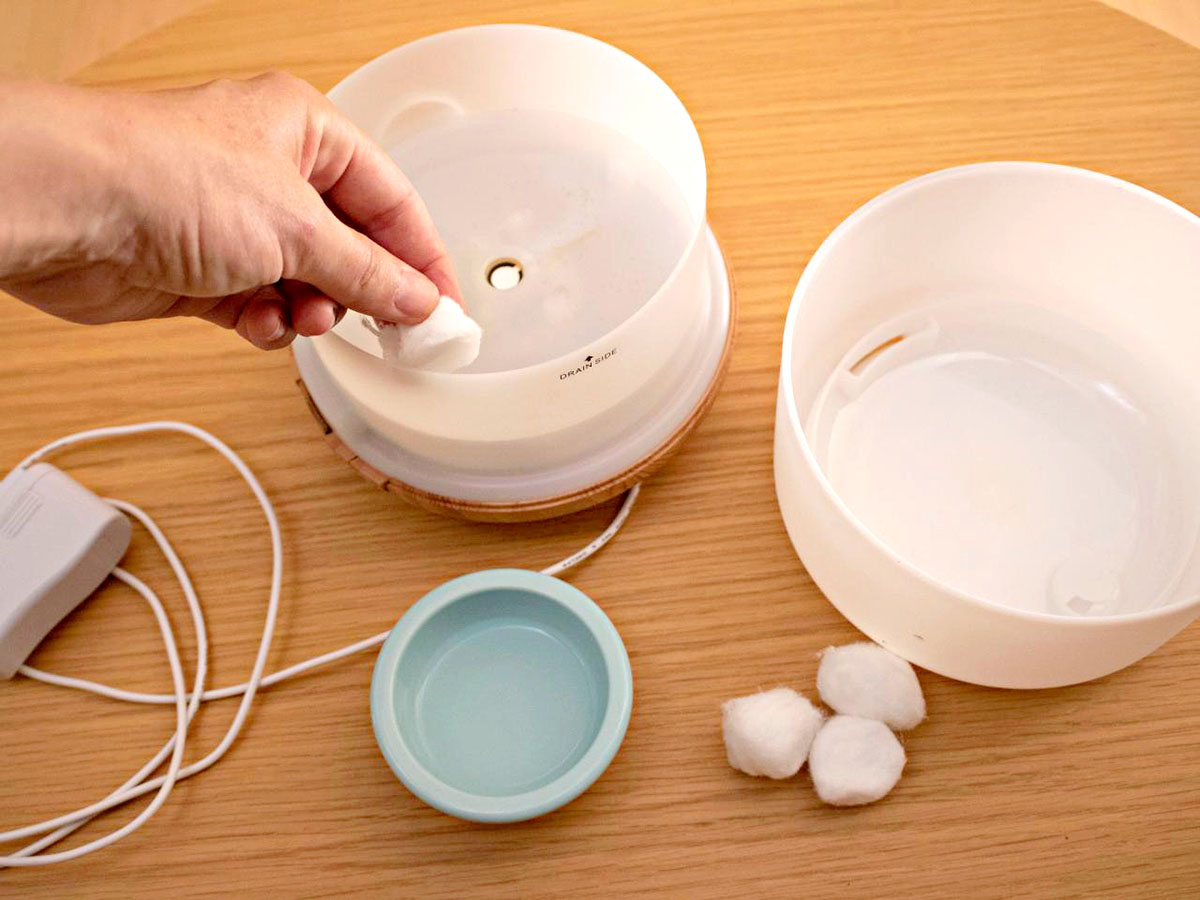
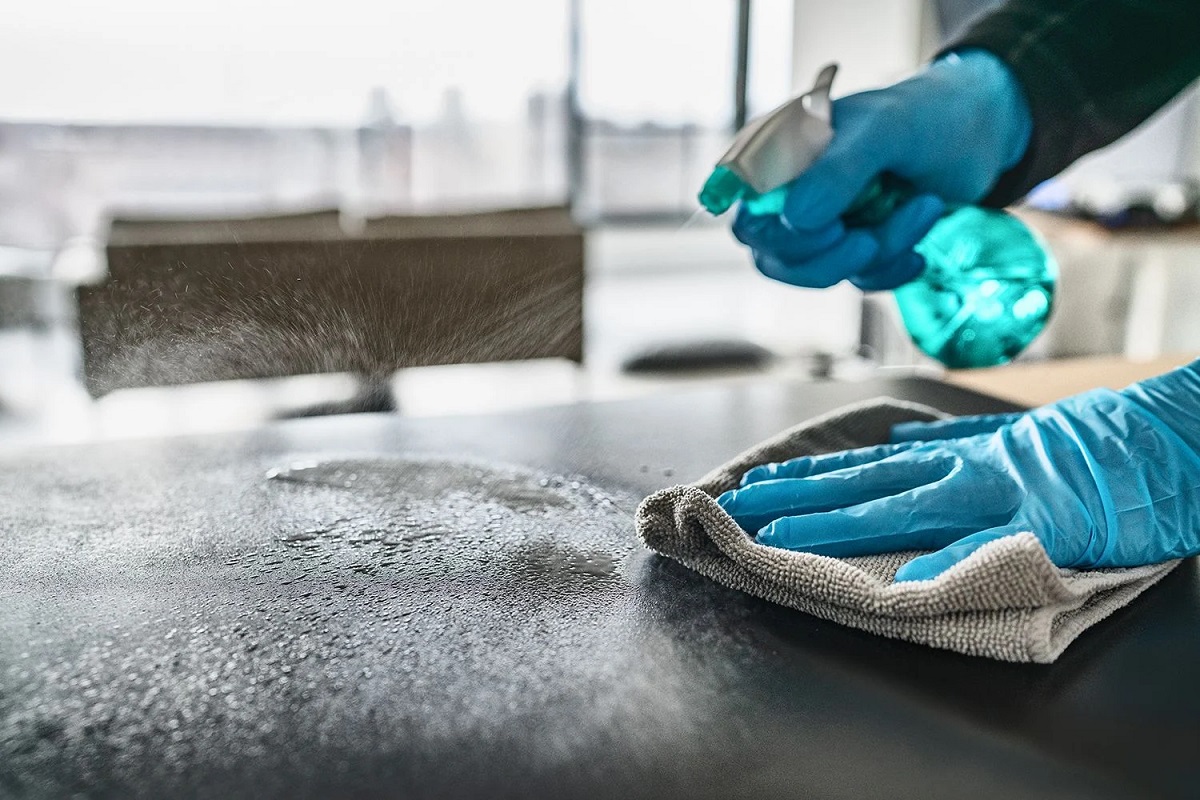
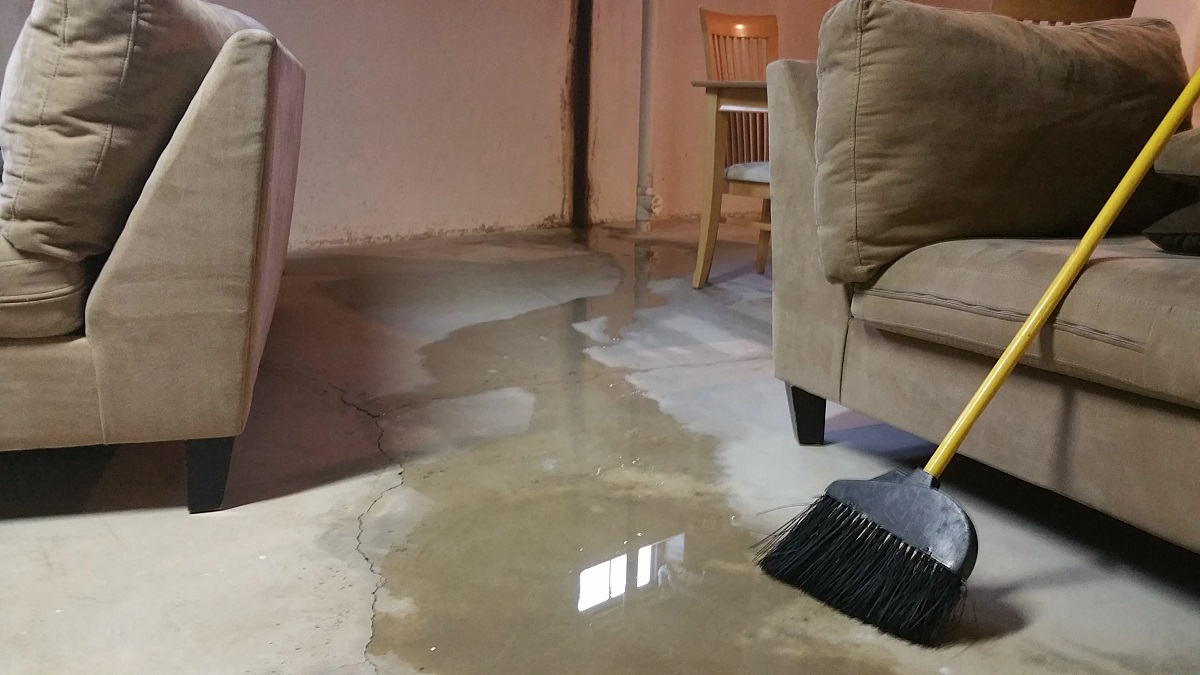
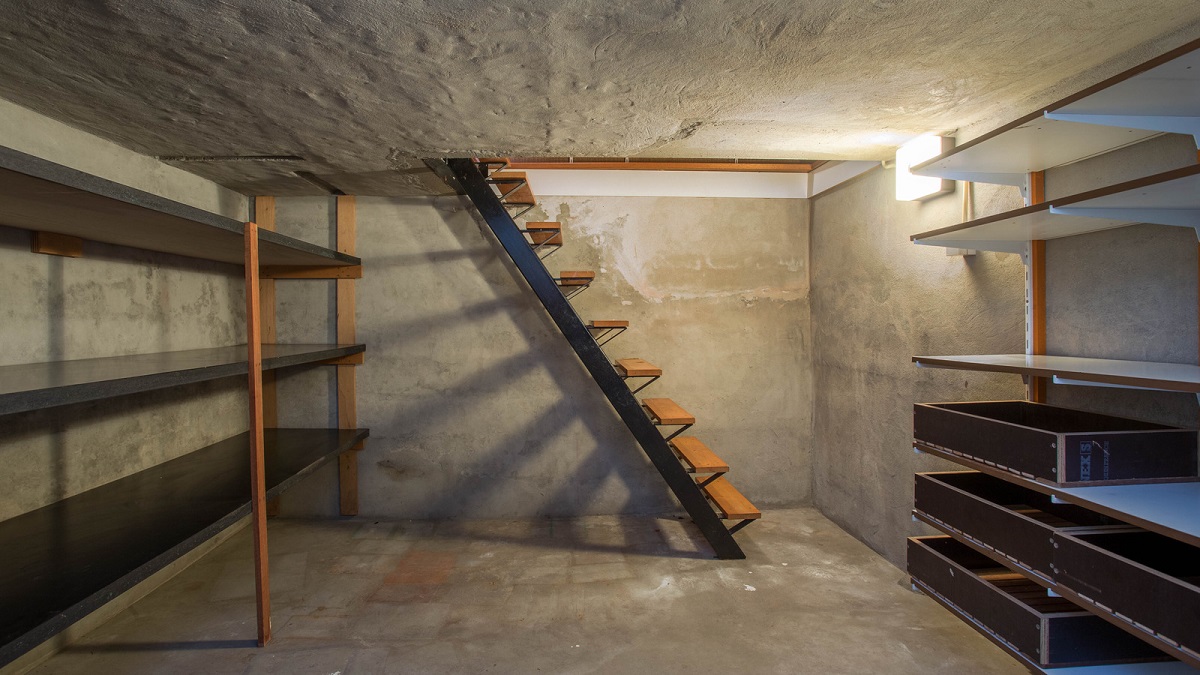
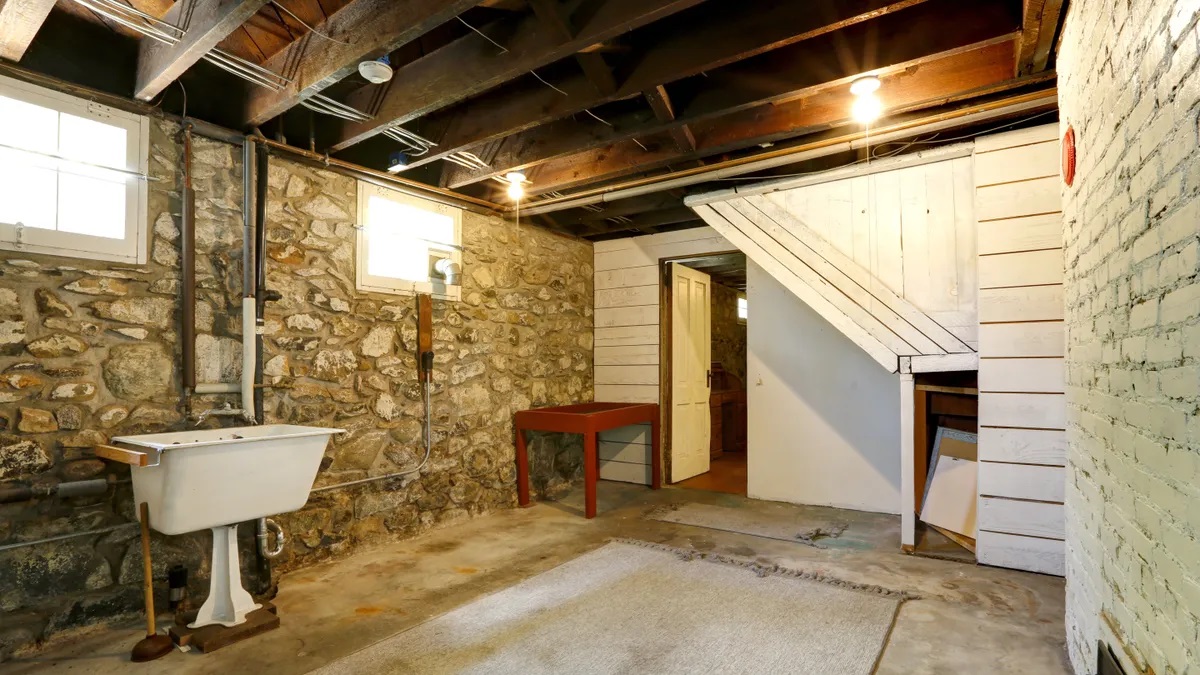
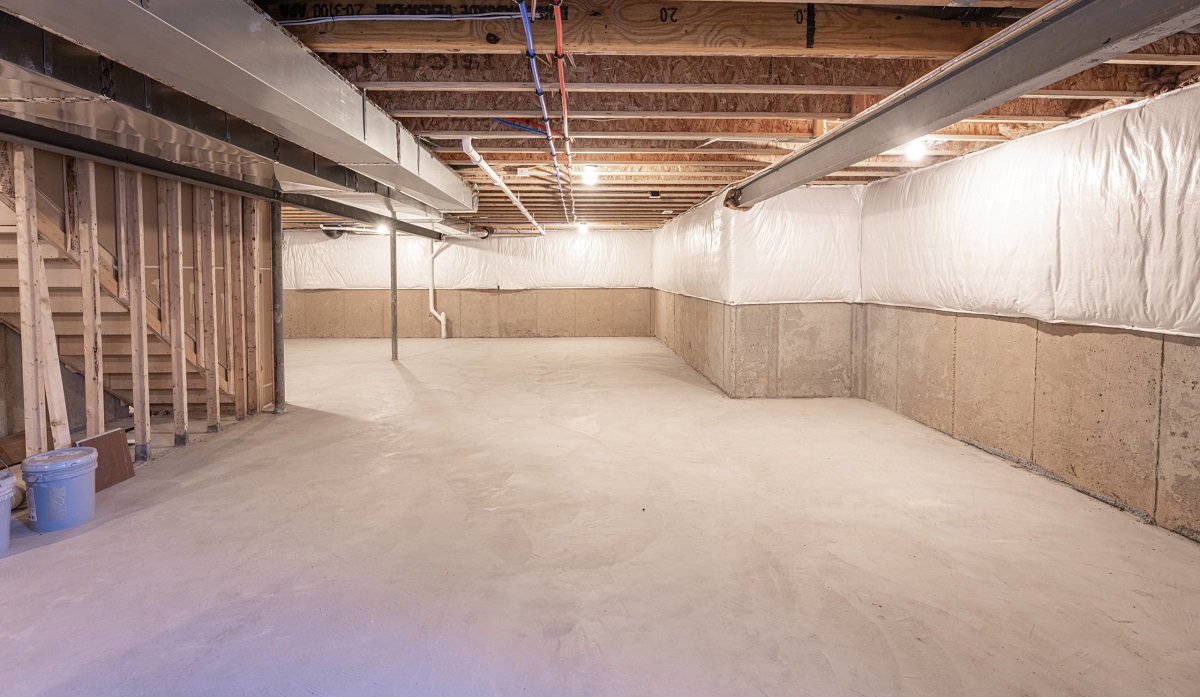
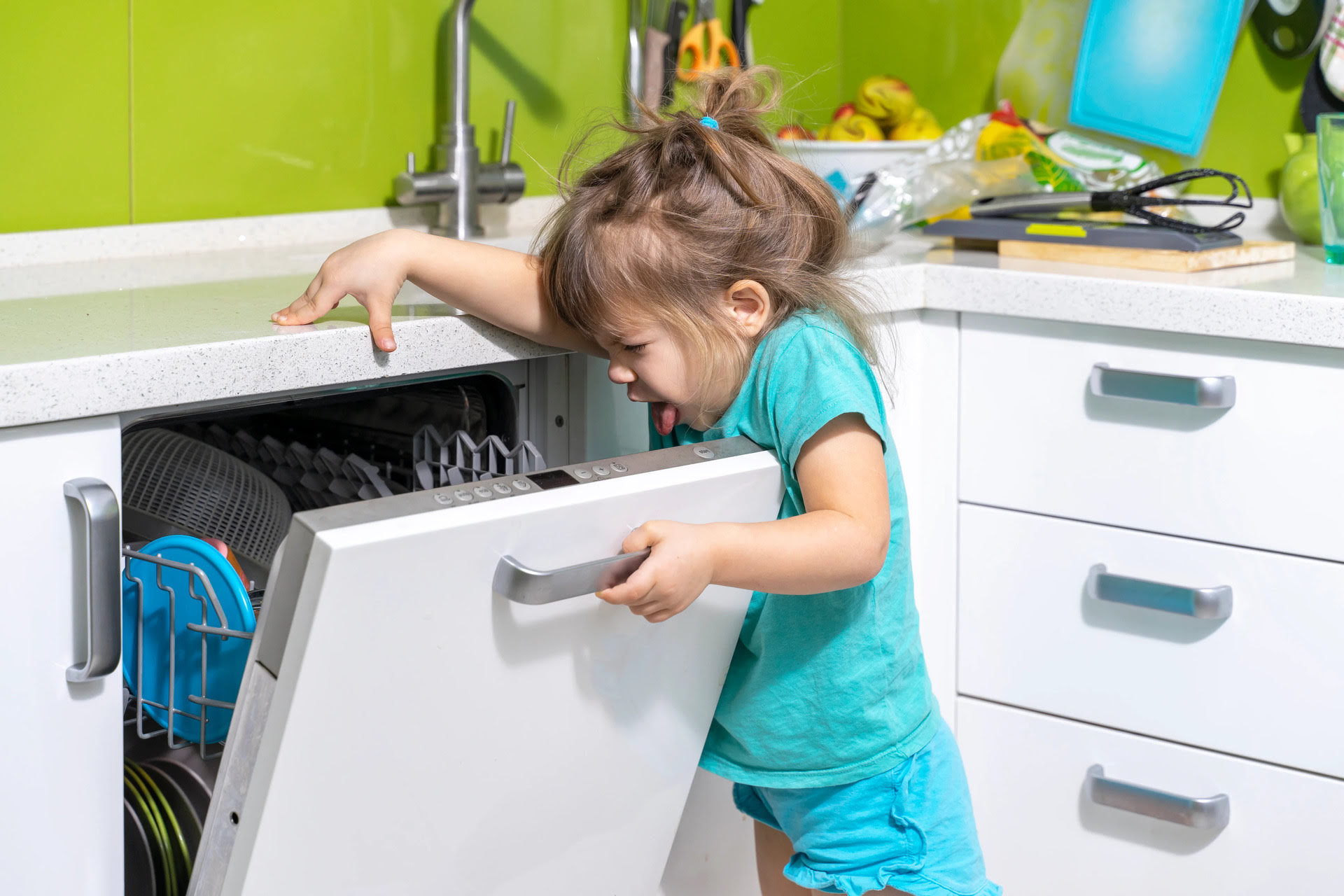
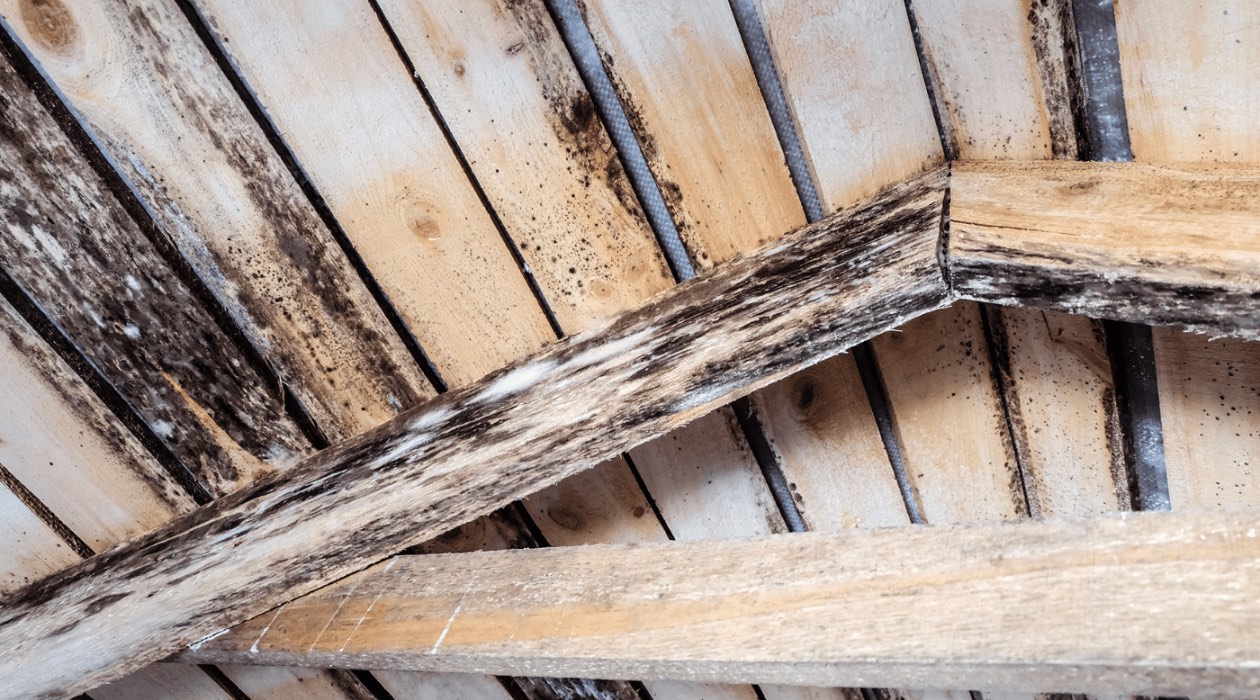
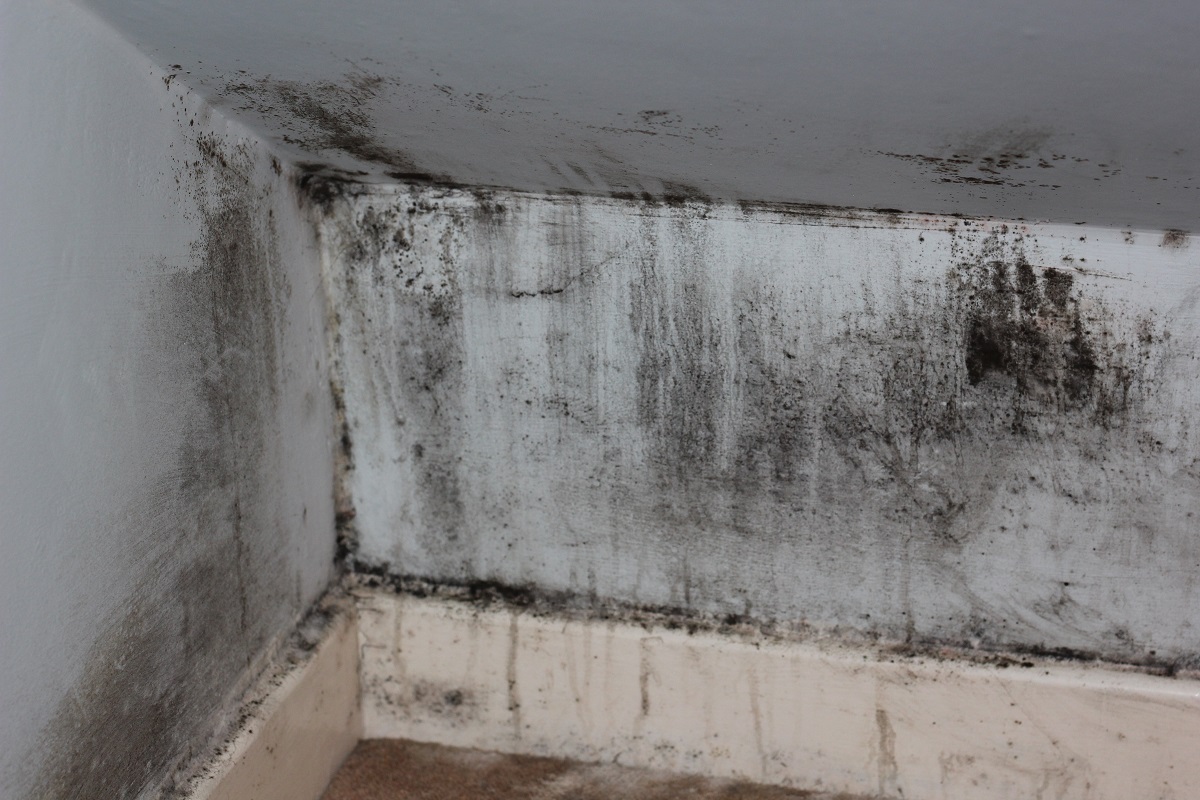
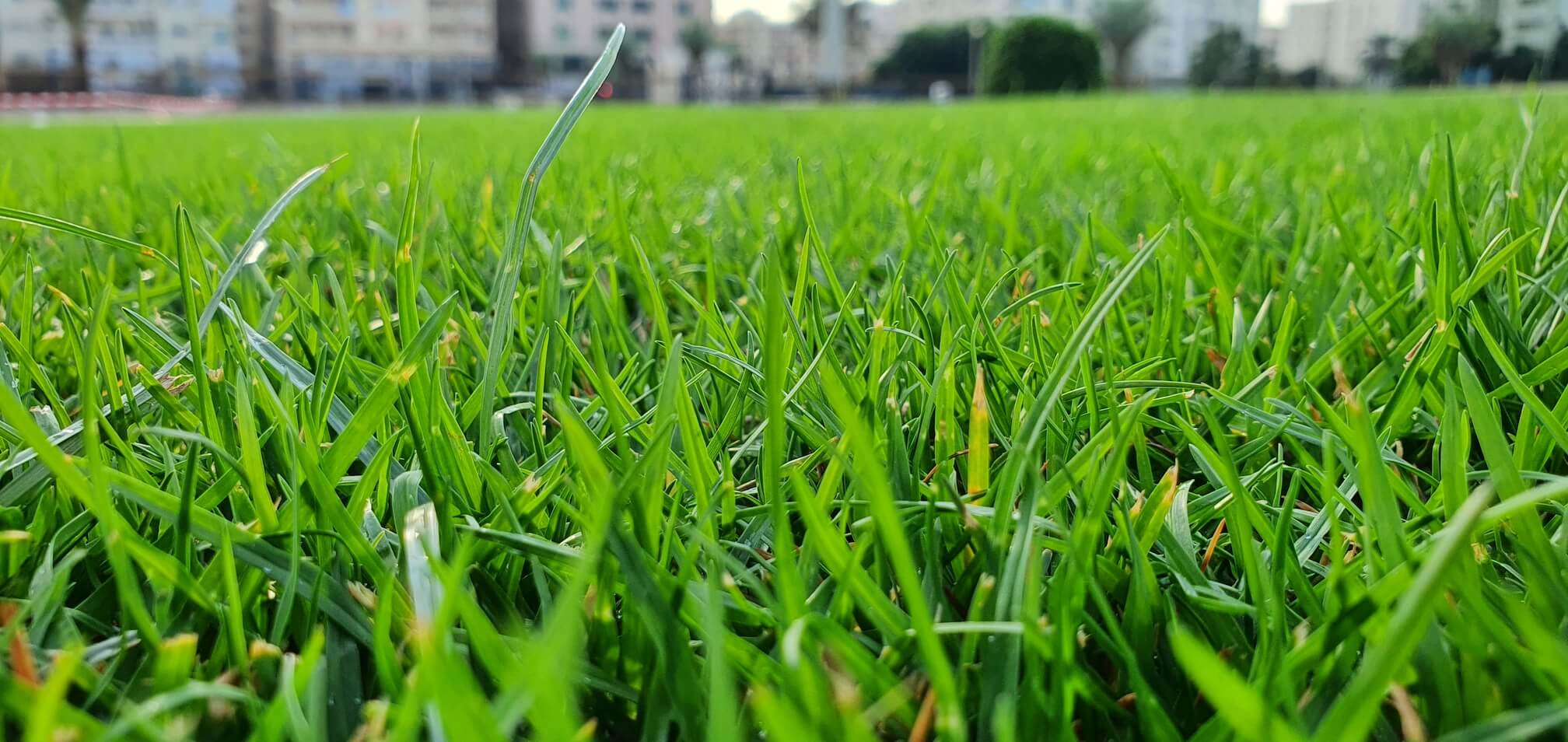
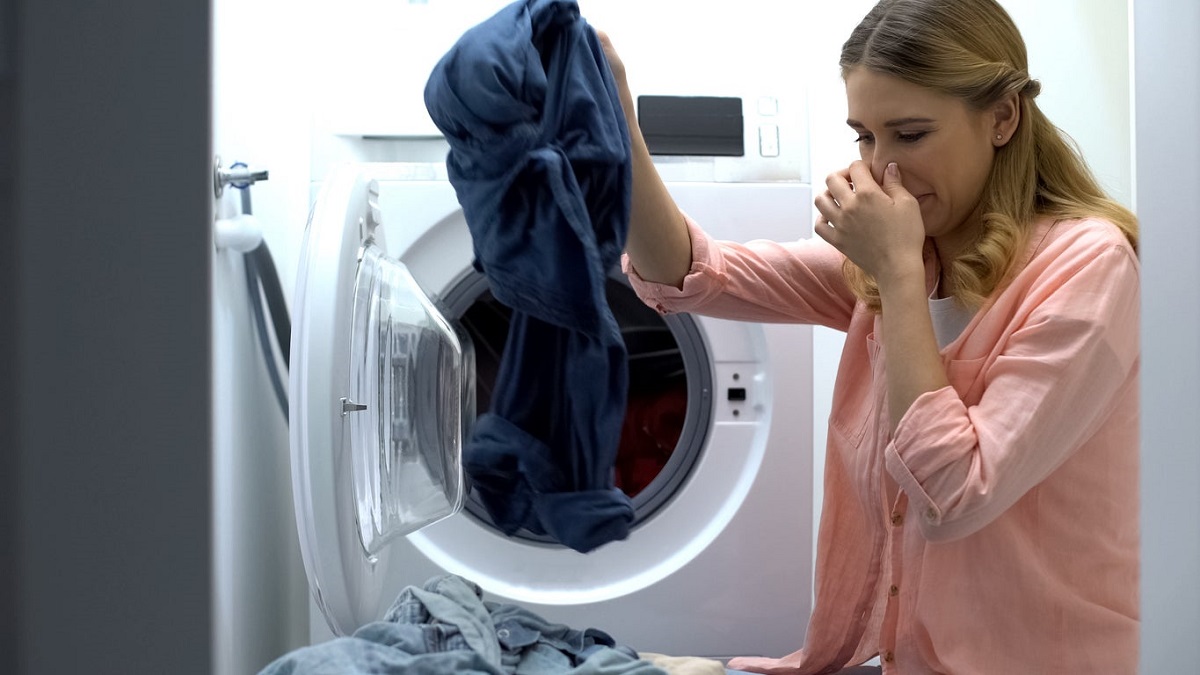


0 thoughts on “Why Does Basement Smell Musty”